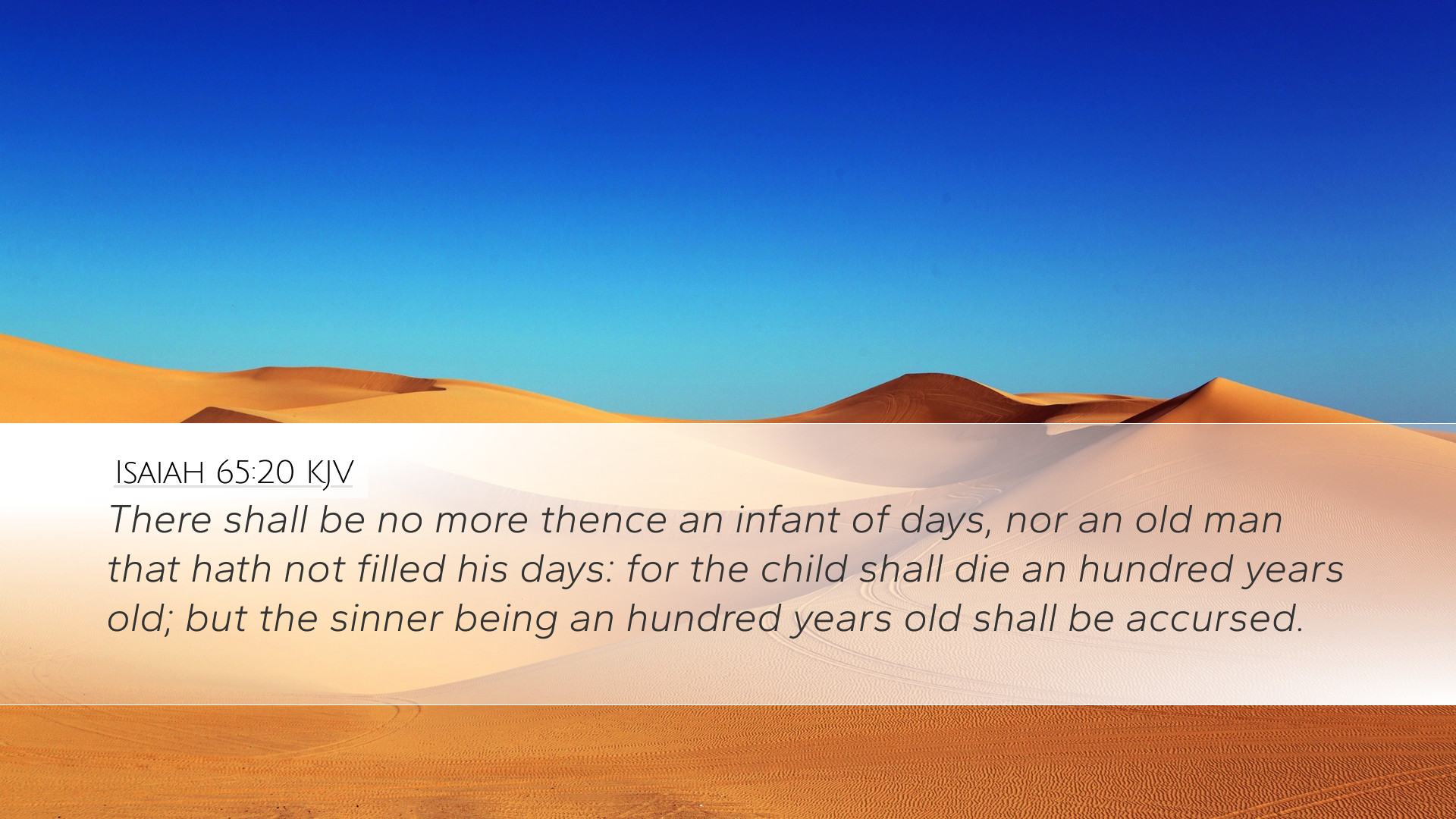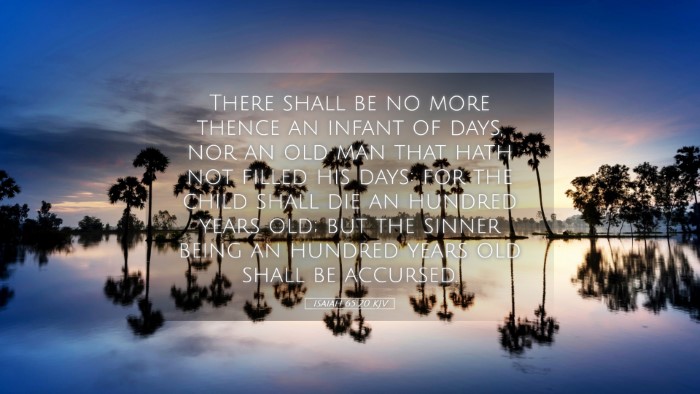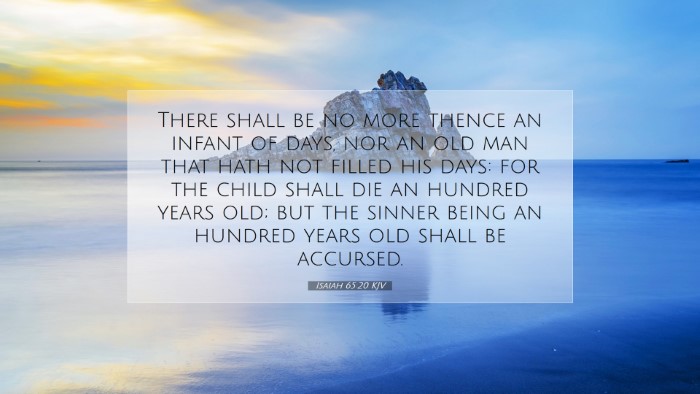Commentary on Isaiah 65:20
Isaiah 65:20 states:
"There shall be no more thence an infant of days, nor an old man that hath not filled his days: for the child shall die an hundred years old; but the sinner being an hundred years old shall be accursed."
This verse emerges from a rich tapestry of prophecy concerning the future restoration of Israel and the coming of God's Kingdom. It holds profound significance within the context of divine promises and eschatological hope.
Contextual Analysis
To understand Isaiah 65:20 thoroughly, one must consider the larger theme of Isaiah's prophecies regarding restoration and renewal. The previous chapters focus on God’s judgment and the aftermath of Israel's sins, but there lies an interwoven message of hope and renewal for God's people.
Interpretation of Key Themes
- The Condition of Life in the New Creation
Isaiah paints a picture of life in the future kingdom where the conditions of existence will drastically differ from the present. The absence of untimely death indicates a time of prolonged life and joy, reflecting God's redemption and blessing.
- The Significance of Age
The mention of infants and old men reflects the whole spectrum of life and the tragedy of premature death common in the current age. Matthew Henry emphasizes that such conditions, particularly infant mortality, will no longer exist in God's kingdom.
- The Fate of the Sinner
Contrasting the fate of the righteous with that of the sinner highlights God's divine justice. Albert Barnes notes that despite the long lifespan mentioned, the sinner, even at a hundred years, is seen as accursed, which serves as a stern warning about separation from God.
Theological Significance
This verse provides profound implications for understanding God's character as one who promises restoration. Adam Clarke emphasizes that the ultimate plan of God involves both mercy for the faithful and justice for the unrepentant. The mention of a lifespan reaching a hundred years serves not merely as a fact of longevity but as a symbol of God’s blessing on a redeemed humanity.
Life Expectancy as a Metaphor
Isaiah's mention of a long life can be viewed metaphorically. It invokes thoughts of stability and peace. The absence of death signifies an era where God’s presence prevails, affirming the shalom (peace) that His kingdom brings. The longstanding expectation of the aftermath of Christ's return will involve a renewed creation, where life thrives as originally intended, apart from the ravages of sin.
Application for Christian Life
For pastors and theologians, this text invites reflection on the doctrine of eternal life and the eschatological hope granted to believers. The assurance of peace in God’s kingdom encourages believers to trust Him amid adversity. Additionally, it urges a focus on evangelism, as the fate of the sinner is dire; it’s a call not just to live righteously but to engage in proclaiming the Gospel.
Encouragement in Ministry
Pastors can draw inspiration from this passage to encourage their congregations about the hope of eternal life and restoration. As they preach, they can assure their flock that the trials of this life are temporary when compared to the everlasting joy that awaits in God's kingdom. However, they must not neglect to balance this with the gravity of the consequences of sin, thereby encouraging a life of holiness.
Conclusion
Isaiah 65:20 serves as a beacon of hope in a world marred by sin and suffering. It encapsulates God’s promise of restoration and renewal for His people, projecting a vision of life that transcends current suffering. Through careful reflection and study, pastors, students, and scholars can extract profound theological truths that not only inform but transform lives.
References from Commentators
- Matthew Henry: An overview of prophetic messages, focusing on the hope in God’s promises amidst judgment.
- Albert Barnes: Insights into the contrasting fate of the sinner against a backdrop of longevity and divine justice.
- Adam Clarke: Theological reflections on God’s mercy and the eschatological hope of believers.


